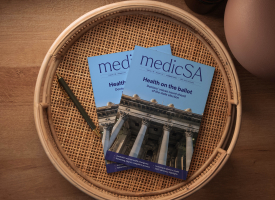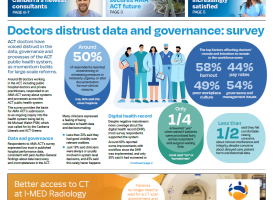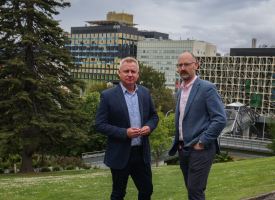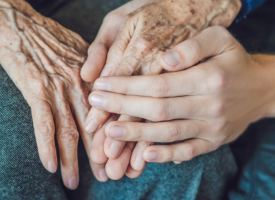Dr Chris Moy - Healthdirect eligibility checker
Transcript: AMA Vice President, Dr Chris Moy, ABC Radio Adelaide, Mornings with David Bevan, Wednesday, 17 March 2021
Subject: Healthdirect eligibility checker
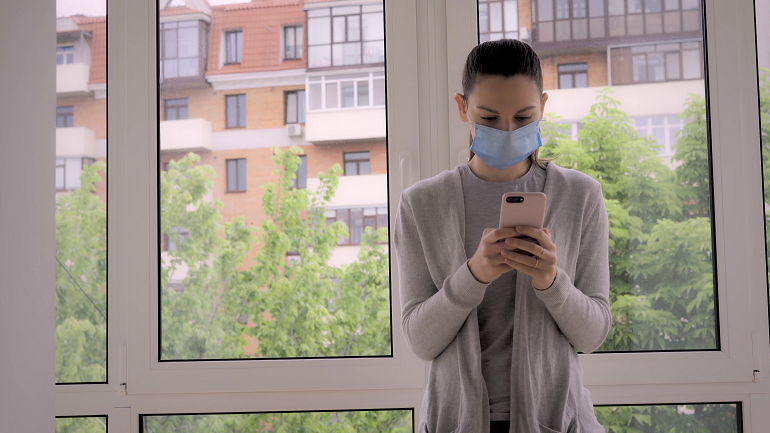
DAVID BEVAN: Now, Chris, are we all in a panic about nothing? We've got a text here from somebody saying: look, just calm down. You know, it's not like there's a lot of corona in South Australia or Australia.
CHRIS MOY: Yeah.
DAVID BEVAN: If the vaccine rollout is a bit slow, it's okay - you don't need to get it right now, you can wait for a few days. Or people- they have genuine concerns, Chris. And that is other texts coming in saying, well hang on, I want my flu vaccine. Can I go ahead and get that? Or is that going to, when the COVID vaccine finally does turn up, am I going to be in trouble? Can you clear this up for us?
CHRIS MOY: Okay. So look, the headline thing is, is that we're still in a sorting out phase. It’s going to take the practices a while to find their feet as they get going, because it's really just starting. Now just from the background, what's actually happening at the moment, over the next month only relatively small amounts of vaccine can be released. It's not like the flu season where we have 15 million shots ready to go, there's only going to be small amounts at the start.
So there's 4600 practices in the first month, they're going to come on in a staggered fashion of about 1000 a week. And they'll been told as they come along, how many they're going to get ahead of time. But it's only probably going to be even 100 or 200 vaccines each, which isn't a large amount. But the idea was to spread the load across- make it equitable in these initial stages.
Now, for people wanting to find it. Today, I gather that the Minister for Health, Greg Hunt, will be making an announcement about information about the practises are going to come online. Now, what's going to happen is there's a website called healthdirect, which is the national website for health information run by the Federal Government. At the moment it has a thing called the eligibility checker which you can find out whether you're eligible, and it has information just generally about the vaccine. But what they're going to put on there is the practices that are going to be able to provide the shots.
Now, on there also will be the contact details for how to contact those practices, and how to make a booking with these clinics. The thing about it is, is that initially there was some thought about making this huge, massive booking system run directly through Government - we could book it directly with the practices. But frankly a lot of us, including the AMA, dissuaded the Government from doing that. We haven't had a great record of creating huge electronic systems, they tend to fail, and especially in the timeframe that we had. So, the idea was to try and keep as much common sense grassroots as possible. Essentially what'll happen is, people will be notified through media, but also they can find out on this website whether they're eligible, find out information about the vaccine, and they will, as the practices come along, find out which practices are coming on, how to contact them and how to make a booking.
DAVID BEVAN: But, Chris, you wouldn't want to be a receptionist in a, in a clinic today, because every man and his dog is going to be ringing up saying, well, can I get a vaccine? And they're going to say, well, no, we can't. Thanks for calling. We'll let you know. And it'd just be a nightmare.
CHRIS MOY: Yeah, look- and I mean that's the problem of not going the other way of having this national booking system, but you can probably understand the thinking about not wanting to build this new monolith which would probably fail anyway. So, in the initial stages we are going to have to find our groove, and that's kind of why, you know, my message to people is just relax in that first initial stages, because everybody is going to be finding their groove.
Look, it's going to be probably quite difficult in the first stages to get appointments because, you know, the practices are probably going do a better prioritisation of those who are most urgent in those initial stages. But there are also other places, not just practices. There's places like respiratory clinics, will be given large numbers of vaccine, and they've been given much larger numbers. And, and also, you've got to remember that the ongoing vaccination of the aged care groups and also the frontline staff, or in group 1a, will continue on as well. So, they're still going to be just pumping along in the background.
DAVID BEVAN: I've got to tell you from Naomi asking: should I be getting my flu vaccine now? Or ASAP? So that time has elapsed by the time I get my COVID vaccination?
CHRIS MOY: Well, that's a great idea. And look, what I'd say is that the general idea is that you're not supposed to have the flu shot within 14 days - there should be a gap, 14 days, between the two shots.
Now, the good news is that because the vaccine has gone to a 12-week gap between them, that will probably allow that. The other good news is that because the practices are going to get small amounts of the COVID vaccine they're - first up - going to be able to sort of manage those, and probably calmly go through them. But also what it means is, because of the small amounts there and because of the larger gap, it is likely that your flu shots will probably be run relatively normally. You just need to make sure that you're not going to be within that 14 day window.
DAVID BEVAN: So, there's some sense in what Naomi's saying, because the chances of Naomi getting COVID-19 are pretty slim in the next few weeks. So, she might as well get the flu out of the way.
CHRIS MOY: Yeah. Yeah, it's not a bad idea. Having said that, one thing to keep in mind - so, the over 65s, they are given a special one only available through general practice. So, if you can get your shot now, for under 65s, just get your normal shot and you can get it through your practitioner. But only general practitioners will be able to provide the over 65s one, and so for those people, they really will need to hold off until that's released. And that probably will happen just after Easter.
DAVID BEVAN: Dr Chris Moy, Ali and I were talking to a doctor before 9 o'clock who said: we're not going to get a lot of this vaccine, so we're going to prioritise. So, I know my, my customer base - the people, my patients - and I know the ones who really are vulnerable and the ones who are less so. So, I'm going to be handing it out to the ones that I think really need it. A listener hears - and I thought, well, that's interesting, he's clearly just doing the best he can with what he's got, as opposed to first in best dressed - this listener says: can't believe you allowed a doctor to get away with saying they will determine who gets vaccinated in their clinic. It's about a national rollout, the arrogance of the doctor thinking he can play God.
Well, first of all, we didn't have a lot of time because we were coming up to the 9 o'clock news to explore this. I did think it was interesting that he was going to make those sorts of calls, as opposed to well, first in best dressed and we'll just give it out until we haven't got any more. But to be fair to him, he was just trying to manage a scarce resource as best he can with the knowledge he's got.
CHRIS MOY: Yeah. And it's been one of those tricky things. Because in the initial stages, not all practices have actually come on board as well, because it was only those practices that were credited, that put in an expression of interest initially, that have come on board. Having said that, there is a thought that probably in the next two or three months, we're hoping that everybody, all practices will come on board. The other thing to keep in mind is we're in a position here in Australia where we don't have a lot of COVID infections. We just need to get that ball rolling and really, things will start to settle down after a little while. I mean, I don't think we need to get caught up with the whole, you know, waiting for a booking, like when you're trying to buy tickets online for a Taylor Swift concert or something like that. I hope people don't get caught in that sort of moment. We just need to do this calmly and Australia, because of its position is allowed, is able to do that - and I think that's wonderful.
DAVID BEVAN: Yeah. And when you say we're in a position to do this calmly, we haven't got a lot of COVID knocking around in our community. It's not like we need to get this thing out here to protect people from something that's going to kill them, because it's out there right now. The vaccine for us, because it's been, and I'll choose my words carefully, virtually eliminated - it's still out there but it's, you know, it's very rare - the vaccine for us is about getting us back to lifting of all restrictions and getting back to a normal life. It's not about saving lives so much right now? Does that make sense?
CHRIS MOY: Well, it is. It's, essentially, protection of the individual, which is the main thing. But if we protect enough people, that may allow decision making, such as the one we've discussed, the ability to open things up a little bit. But one thing I'll keep in mind though, I'm hearing the other thing, the odd persons coming up to me and saying: look you know, I won't have the vaccine because we haven't got any at the moment because we don’t have any COVID. But you've got to remember, exactly what you said there, say in about six to eight months when the majority of population, you know, have been vaccinated, or at least have their first shot, they'll be basically very highly protected from getting into- ending up in hospital. The Governments may start opening up. So, for those people, feeling a bit of reluctance to consider vaccines, just have a ponder on that, because I think we are making decisions about trying to protect community for the future.
DAVID BEVAN: You're going to want to get the vaccine when they start lifting the restrictions, you would want that knocking around inside you. But as- whether you get it today, or next week, or whenever it turns up in your GP clinic, it's not going to make a big deal, isn't it?
CHRIS MOY: Yeah. That is right. And there'll be frustrations at both ends. There'll be people feeling like they can't get an appointment and they'll feel a bit disillusioned; and, there will be people on the frontline, poor staff, as you said. But you can sort of understand the thinking. I mean the AMA has to be part of it.
We didn't want this huge monolithic electronic system which was almost destined fail. But also, we wanted to make it as grassroots as possible, and we wanted to spread the vaccine through as many points of contact as possible - meaning that there's small amounts of those places. But the advantage of that, is it actually lowers the risk because it's a lot more grassroots. And it means that if, you know, there's places which are falling a bit behind, the others can take the slack a bit. Which, I think there was a problem in places like New York where they made rather silly decisions to only put the vaccines through hospitals - just through hospitals. And it's just been a real problem because they had COVID as well and they just didn't manage at all.
DAVID BEVAN: Dr Chris Moy, you're a busy man and we appreciate your time.
CHRIS MOY: It's a pleasure.
